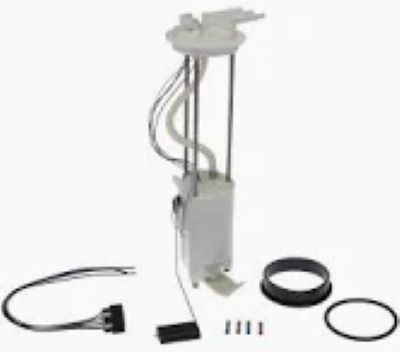Yes, fuel pump failure CAN ruin engines by messing up fuel flow and causing lean fuel conditions to damage internal parts. In order to maintain the best combustion, engines depend on a consistent air-fuel ratio and most fuel-injected vehicles need fuel pressures between 30-60 psi. A lean mixture is when not enough fuel can get to the engine, and this can be caused if a fuel pump fails to deliver the necessary pressure. This inconsistency will cause the fuel to not burn completely, this can increase the combustion chamber temperatures by as much as 20% increasing engine temperatures and damage engine parts like pistons, valves or cylinder walls.
If not adequately pumping fuel, this results in a noticeable reduction in engine performance which causes rough idling, reduced power and stalling. Occasionally the car will start knocking, in a state where the combustion of the mixture doesn't occur correctly and it combusts way before it's supposed to causing more wear on all of these moving parts directly. This can substantially lower engine performance and long life, especially if the failure of the fuel pump is not realized for an extensive duration. According to automotive reports, leaning your engine for more than an hour or two can take up to 15% of the life from it due to the wear and tear of overheating and knocking.

Fuel pump failures also plague catalytic converters, which are built to clean and control burned-fuel emissions. Lean fuel will also create an excess of heat which can burn the converter’s inner lining which in term requires replacement and ranges from $1,000 to $2,500 thus not really a cheap fix. If a catalytic converter becomes damaged this extends the damage caused to the exhaust system, causes more strain on your engine and can ultimately lead to other costly repairs.
Professional mechanics make early detection a key factor. In the words of automotive guru Chris Fix, "You should never ignore a failing fuel pump; the engine relies on constant fuel flow to avoid catastrophic failure. Routine maintenance, such as new fuel filters every 20 to 30 thousand miles helps minimize pump wear saving up for a day at the beach.
After all, having a fuel pump go out early prevents further damage throughout your engine. Find more information about Fuel Pump and other maintenance-related topics on Reliable AutoFuel Pumps.
